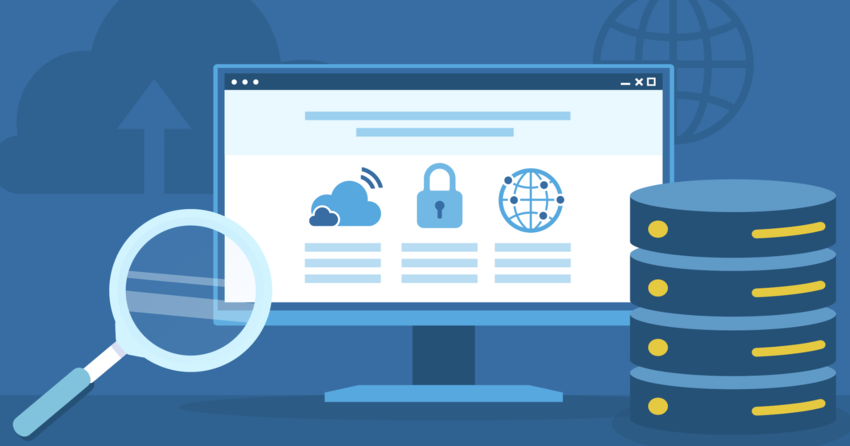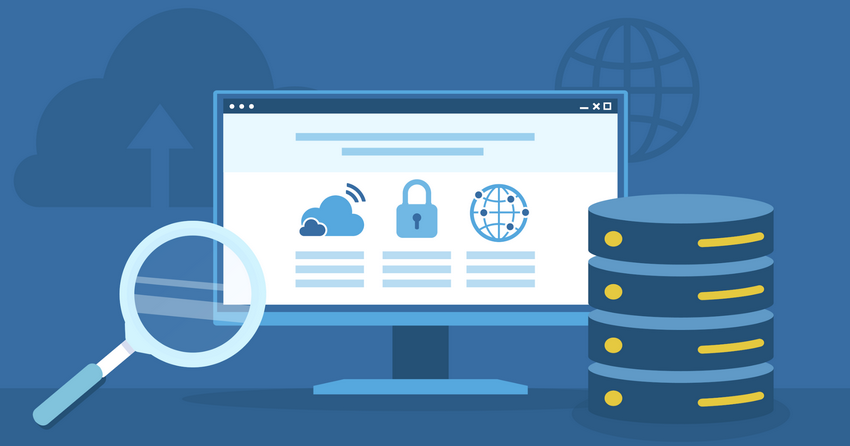Inside this Article
Definition of Dedicated Hosting
Dedicated hosting gives you complete control of a server that you don’t share with anyone. In shared hosting, multiple websites use the same server and split its resources, but with dedicated hosting, all resources are yours. You can configure the server to fit your needs and scale resources as your website grows. Though dedicated hosting costs more than shared hosting because you’re paying for the entire server, it’s better for high-traffic websites, large businesses, and resource-heavy applications. However, managing a dedicated server can be technical. If you’re not comfortable with that, you can go for managed hosting, where the hosting provider handles the backend.How Does Dedicated Hosting Work?
Dedicated hosting gives you exclusive use of a physical server that is stored in the hosting provider’s data center. The server is connected to the internet and has a CPU, RAM, storage drives, and network interfaces, similar to a high-performance computer but built for hosting websites or applications. Here’s how dedicated hosting works:- Leasing the Server: You rent a physical server from a hosting provider, who ensures it is connected to high-speed internet and has the necessary infrastructure, such as power, cooling, and physical security.
- Full Administrative Control: As the sole user, you have complete control over the server. You can choose and configure the operating system, install the necessary software, manage security, and optimize performance to fit your needs.
- Exclusive Resources: The server’s CPU, RAM, storage, and bandwidth are only for you, so you can get consistent performance without interference from other users.
- Data Center Management: The hosting provider manages the physical setup of the server, handling power, cooling, and internet connectivity to ensure your server stays online and secure.
Benefits of Dedicated Hosting
Besides server space, dedicated hosting offers dedicated resources, security, flexibility to scale, and continuous support and maintenance. Here are some benefits of dedicated hosting:Better Performance
Dedicated hosting gives you full access to the server’s resources, including processing power, memory, and storage. You won’t have to share these resources with other websites, so your site can handle high traffic without slowing down. This is especially important for busy sites like online stores, where speed and stability can directly affect sales. Dedicated servers can manage sudden spikes in traffic better than shared hosting. During holiday sales or special events, your site won’t crash or lag because all the server’s resources are focused on your needs. Using faster storage, like SSDs, also boosts performance by loading content more quickly.Customization and Control
Dedicated hosting gives you complete control over every aspect of your server. You can choose the operating system that best fits your needs, install custom software, and configure security settings like firewalls to protect your data. If you run an e-commerce site, you can configure your server to meet PCI DSS standards, which include encrypting payment data. In addition to software control, you have the flexibility to upgrade hardware components like memory, storage, and processing power. As a result, you can scale up your resources as your business grows. You have full administrative access to change the server’s environment and optimize performance based on your exact requirements.Security
With dedicated hosting, you can set up firewalls to block unauthorized access and allow only approved traffic, such as connections from trusted IP addresses or specific types of requests. You can also install an intrusion detection system (IDS) to monitor any suspicious activity or an intrusion prevention system (IPS) to auto-block harmful traffic, like hacking attempts. You can customize your security measures to comply with specific industry regulations, such as HIPAA for healthcare or PCI DSS for online payments. A dedicated server also gives you a unique IP address, which lowers the risk of your server being blacklisted due to the actions of other users—something that can happen with shared hosting.Scalability
Dedicated hosting lets you quickly scale your server resources to meet growing demands. You can upgrade hardware like RAM, storage, and CPU power as your website or application expands. This flexibility helps you handle spikes in traffic, such as during sales or special events, without slowing down your site’s performance. If you use multiple dedicated servers, you can implement load balancing to distribute traffic across those servers. This setup helps more extensive infrastructures manage even higher traffic volumes. However, for a single dedicated server, simply scaling up its resources to handle growth should be enough.Reliability
Dedicated hosting is more reliable than other hosting options and less susceptible to your website slowing down or crashing due to other users’ actions. Hosting providers also implement backup systems, such as extra power supplies, network connections, and storage. These systems automatically take over if something fails, keeping your site online without interruption. In addition, data centers hosting dedicated servers are designed to prevent downtime by using multiple internet connections and backup generators. Many providers also offer Service Level Agreements (SLAs), which guarantee a high level of uptime, ensuring your site remains accessible. This reliability is crucial for businesses that require continuous availability.Dedicated Hosting Use Cases
High-Traffic Websites
Dedicated hosting is built to handle heavy traffic. If your site gets thousands of visitors at once, such as during peak shopping seasons or major events, a dedicated server provides the necessary resources to keep everything running smoothly. Unlike shared hosting, where other users can slow down your site, dedicated servers can handle large amounts of data and traffic without interruptions. They also reduce the risk of downtime and performance issues, which can harm your site’s reputation and user experience.E-commerce Websites
E-commerce sites need reliable server performance to process transactions quickly and securely. Dedicated servers provide the resources to manage large volumes of traffic and data, ensuring that customer interactions remain smooth and efficient. Additionally, they offer robust security features to protect sensitive information like payment details, which is crucial for maintaining customer trust.Gaming Servers
Online gaming requires fast, reliable servers to ensure smooth gameplay with minimal latency or lag. Dedicated servers offer the processing power and bandwidth necessary for multiplayer games, preventing delays that can ruin your gaming experience. You can also customize the server to install specific gaming software, set up anti-cheat measures, and ensure consistent performance.Media Streaming
Media streaming platforms require high bandwidth and processing power to deliver smooth, high-quality audio and video content to large audiences. Dedicated servers are built to handle these requirements, allowing you to stream content without interruptions or buffering, even when thousands of users are watching simultaneously. With dedicated hosting, you can also integrate API video access, multi-streaming, and live chat into your streaming server.Resource-Intensive Applications
Applications like data analytics, scientific simulations, and video encoding require significant processing power, memory, and storage. Dedicated servers provide the resources needed to run these complex operations efficiently. They also let you customize hardware and scale resources as needed, allowing you to work with demanding workloads without slowdowns.Data Storage and Backup
Dedicated servers are often used for secure data storage and backup. Businesses that handle large volumes of data rely on these servers to store their information safely and ensure it’s always available when needed. With dedicated hosting, you can set up automated backups, protecting your data from loss due to hardware failure or cyberattacks.Large Organizations
Large organizations often need robust hosting to manage multiple departments and operations efficiently. Dedicated hosting allows them to centralize their IT infrastructure by running websites, databases, and critical applications like CRM systems and employee portals on a single server. It also lets them set up multi-layer firewalls, custom encryption, and isolated environments for different departments.Choosing a Dedicated Hosting Provider
When selecting a dedicated hosting provider, consider the following factors:- Hardware specifications: Ensure that the provider offers servers with the necessary hardware, such as CPU, RAM, storage, and network bandwidth, to meet your requirements. Look for modern hardware options, such as SSD storage and DDR4 RAM, which offer better performance.
- Network infrastructure: Choose a provider with a robust network infrastructure that includes high-speed connections and low latency. Make sure they have backup network paths to keep your server running even if one connection is down.
- Security measures: Ensure your provider offers robust protection, like firewalls and intrusion detection systems. Look for DDoS protection to guard against attacks that can take your site offline. Make sure you can configure these settings to suit your business.
- Managed services: Decide if you need managed services, where the provider handles tasks like software updates, security patches, and backups. This option is helpful if you don’t have the technical expertise or time to manage the server yourself.
- Scalability options: Make sure the provider offers flexible scalability. You should be able to upgrade your server’s resources, such as storage or CPU power, as your business grows without needing to switch providers.
- Server location and data center quality: Choosing a server close to your target audience can reduce loading times. Also, check the quality of the data center, including power backups, cooling systems, and physical security, to ensure reliable service.
- Backup and disaster recovery: Ensure the provider offers regular backups and a disaster recovery plan. This helps protect your data in case of hardware failure or other issues, allowing you to restore your site with minimal disruption quickly.
- Technical support: Choose a provider that offers 24/7 technical support. Make sure they have a knowledgeable team ready to assist with any server-related issues you might face.
- Pricing and contract terms: Compare pricing plans and contract terms from different providers to find the most cost-effective solution that meets your requirements. Consider factors such as setup fees, monthly charges, and contract duration.






